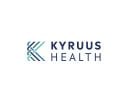
“This period will accelerate change personally and professionally for everyone we work with,” Manak Ahluwalia, president and CEO of Aqueduct Technologies, said.
This sentiment sums up how many leaders in Boston feel as they think about the future of their industries post COVID-19. But life is happening right now, and for many companies, that means immediately adapting their business strategies to better meet their clients’ and workforce’s needs.
Kyruus, which helps health systems match patients with providers, added COVID-19 terms to its clinical taxonomy so that health institutions could update provider profiles. Doctor review platform CareDash helped healthcare providers promote their telemedicine services and provided information to patients.
Changes aren’t just client-facing. Companies are making adjustments to their internal infrastructure — rolling out new culture initiatives, wellness resources and home office stipends — to help their teams adapt to remote life.
In the second half of this two-part series, we explore how Boston companies are adapting in light of the pandemic. In some instances, business leaders think this experience will position them well for the future, giving them an opportunity to rethink how they deliver services, run meetings and cultivate interpersonal relationships.
“Our internal operations will be significantly impacted by this global crisis, for the better,” Bernie Gracy, chief digital officer at Agero + Swoop, said.
How is your business shifting in response to the COVID-19 outbreak?
With an increased remote workforce, our “Remote Workforce Readiness Assessment” provides a comprehensive review of a customer’s environment to ensure their hardware capacity and configuration is able to scale to provide increased connectivity for remote workers.
We also expanded our offerings to include a “Remote Power User Enablement Package.” This package is designed to give executives and power users a home office solution that includes secure network connectivity, the latest in collaboration technology and white glove end-user support. Additionally, we are offering complimentary video conferencing with the full functionality of Cisco Webex Enterprise, including unlimited meetings and webinars and an international audio plan.
We are offering flexible payment solutions that allow customers to get the equipment they need now and take six months to determine how they would like to pay. On the sales front, we are focused on simply checking in with our customers and ensuring they know we are here for them throughout this journey.
Leadership provided tools for our engineers to continue their studies and achieve certifications.”
How have you aligned your team around this shift as employees work from home?
To help maintain a trusting environment and encourage open dialogue, we hold weekly Q&A calls for myself and our leadership team to provide updates on the current state of the business and ongoing initiatives. Additionally, we have been hosting virtual team-building activities, like trivia, to maintain culture.
Leadership provided tools for our engineers to continue their studies and achieve certifications they’re interested in. Managers and mentors are finding creative ways of allowing others to shadow tasks and gain exposure to new responsibilities. HR ensures that employees are provided additional work-life balance information and materials to support themselves and their families outside of the workplace. Our employees support one another via email and collaboration tools such as WebEx, Microsoft Teams and our HRIS system.
How do you think this shift will impact your business in the future?
We do believe the way people engage, how they work and where they make their investments will be forever changed. We are expecting less face-to-face interactions through the year. This adjustment will require us to rethink how we deliver services, run meetings, leverage collaboration solutions and cultivate interpersonal relationships. We believe customers will make less investments in traditional on-premise equipment and look to implement cloud services where they can. Additionally, we are expecting some industries to have an extended period of uncertainty and financial pressure, which will have macroeconomic impact on all of us for the foreseeable future.
How is your business shifting in response to the COVID-19 outbreak?
For healthcare partners who provide ongoing care that has been disrupted by COVID-19, we’re helping them promote the availability of virtual appointments for both existing and new patients. For organizations that are on the frontline of the fight against COVID-19, we’re focused on helping them take advantage of our free suite of tools that provide up-to-date information to patients that are searching for care.
Planning our social interactions and fun events takes a little more effort.”
How have you aligned your team around this shift as employees work from home?
There’s been a shift in prioritization of projects and resources to support the immediate data and connectivity needs of our healthcare partners. As we’ve been working on and supporting telemedicine capabilities for a year now, the COVID-19 outbreak has restructured our existing priorities rather than significantly shifting them to something new.
Beyond that, our processes, infrastructure, communication and project management have all been designed to allow employees to be productive from anywhere, so the shift to working remote has been smooth. However, planning our social interactions and fun events takes a little more effort.
How do you think this shift will impact your business in the future?
More healthcare providers are adopting telemedicine to continue treating patients in a safe way, and it will be interesting to see whether that sticks in the future. The broad availability of virtual appointments across provider networks is a huge win in creating easy access to care, particularly in more rural areas where patients have fewer options. It can also help control spiraling healthcare costs and enable a more preventative approach to delivering care. In our mission to connect patients to the best care available, supporting and enabling telemedicine has the potential to significantly improve the options available to patients.
How is your business shifting in response to the COVID-19 outbreak?
We proactively responded to the needs of our health system customers and their patients by updating our clinical taxonomy with COVID-19 terms, allowing health systems to configure their provider profiles and providing better access and search capabilities.
We established a LinkedIn community, “Kyruus Customer Community: COVID-19,” bringing thought leaders together to exchange ideas and create a support system for health care leaders. And we know customers will more heavily rely on virtual care and telemedicine, so we waived integration fees for our customers who wanted to surface virtual care options.
Some Kyruuvians have volunteered to take on projects or work outside their normal scope.”
How have you aligned your team around this shift as employees work from home?
We sent the right equipment home to our “Kyruuvians,” offered them a stipend to put toward tricking out their office setup and provided a monthly allowance for recurring home office costs. As work and priorities have shifted, some Kyruuvians have volunteered to take on projects or work outside their normal scope to support their fellow teammates.
We strive to remain as connected even though we’re physically distanced. So among other initiatives, we implemented “Taco Tunesday” sessions featuring live music performances by our staff over a Tuesday lunch hour. In our inaugural session, we raised over $2,000 for the Feed America charity.
How do you think this shift will impact your business in the future?
When a sense of normalcy returns, health systems will ultimately reopen access for the non-COVID-19 care that represents around 90 percent of healthcare needs. Kyruus’ ability to deliver provider search and scheduling solutions that help health systems match patients with the right providers will better enable health systems to care for the communities they serve.
How is your business shifting in response to the COVID-19 outbreak?
We continue to be up and running around the clock to support motorists broken down on the side of the road or involved in accidents. Our digital self-service tools and contact center employees are still working to deliver aid during these stressful situations.
We are working with one automotive client to help them support sales and service with an entirely touchless customer experience. We’re also coordinating with insurance and original equipment manufacturer clients to create tailored service experiences for first responders.
We were able to rapidly shift our more than 3,500 employees to remote work in a matter of days.”
How have you aligned your team around this shift as employees work from home?
We invested in digital tooling — internally and for our client-facing platform — to ensure high elasticity and reliability. Because of our cloud-enabled IT backbone and our existing use of collaboration technologies, we were able to rapidly shift our more than 3,500 employees to remote work in a matter of days. This shift had no impact on our clients, partners or the consumers we support.
Our HR teams are helping to create a sense of balance for our associates through virtual workouts, happy hours, storybook reading for employees with kids and more.
How do you think this shift will impact your business in the future?
Our internal operations will be significantly impacted by this global crisis, for the better. We solidified our ability to support our clients and their customers anytime and anywhere they need us.
As an industry today, we face lower service event volume due to fewer cars on the road. But we anticipate a bounce back when stay-at-home orders are lifted and life gets back to a semi-normal routine. Support services — like dispatch tools for tow operators, mobile request capabilities and digital mapping — will be more automated than ever before.
How is your business shifting in response to the COVID-19 outbreak?
We think about the impact of COVID-19 in two phases, with the first being business stabilization. Clients are focused on solving immediate needs like shifting to a remote workforce, addressing increased customer service volumes and adapting messaging and offerings to empathetically engage their customers.
As they do so, many of our clients see the crisis as fundamentally changing how they must operate. For example, clients will demand greater digital engagement and personalized experiences. Employees will demand a greater degree of freedom to work from anywhere. Pega is responding with solutions that help clients with business stabilization while providing the foundation for long-term digital transformation.
Recently, we created a portfolio of 18 industry-specific solutions that help organizations quickly adapt to the demands of COVID-19. These solutions are designed to deliver high impact results immediately. For example, to help banks deal with a huge influx of applications for COVID-19 emergency loans, we developed the Crisis Small Business Lending reference application.
Our software and corporate culture are all about change.”
How have you aligned your team around this shift as employees work from home?
We’ve had to quickly pivot to a nearly 100 percent remote workforce, and were able to do so with minimal disruption. Our sales and client success teams have become adept at running virtual sales calls, operational walkthroughs and workshops. We continue hiring for key positions with appropriate selectivity. Our events team shifted our most important gatherings virtually and reinvigorated them so they’re more engaging and worthwhile for at-home attendees.
Overall, we’re learning to build new muscles around how we interact. A lot of these new behaviors will persist long after we’re on the other side of the crisis.
How do you think this shift will impact your business in the future?
Changes to the way people work, commute, transact and interact will persist long after this crisis stabilizes. Actions like the movement of goods, procurement of supplies, delivery of services, service of customers and the preparedness adapt all require a new way of thinking. Our software and corporate culture are all about change.
Organizations will have to become leaner, faster and more adaptable to changing requirements. Business resiliency will require scalable digital customer experiences. They will need to better understand and put in place resilient suppliers and go-to-market channels.
We know there is profound loss and challenge right now. But we believe in the resiliency and adaptability of the human spirit, and that we will see new ideas emerge from this crisis.















